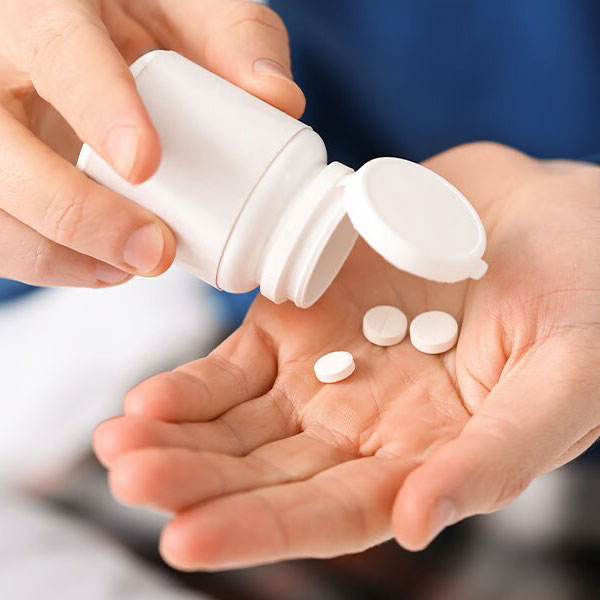Boost Your Levels: Exploring the Reality Behind Testosterone Supplements
Men are bombarded with ads on TV, radio, online and social media that promote supplements that boost testosterone (T). Are these T-boosters (over-the-counter boosters of testosterone) safe and effective for men? Healthnews interviewed several men’s healthcare experts to find out their opinions on the benefits and risks of T supplements.
What is testosterone
Testosterone is a sex-hormone that is primarily produced by the testicles. It plays an important role in the development of male reproductive tissue and secondary characteristics such as hair growth on the body, voice deepening and growth spurts in puberty. Testosterone can build muscle, support bone health and increase the production of red blood cells and sperm in men.
[ruby_related heading=”More Read” total=3 layout=1 offset=5]
As men age, their levels of testosterone decline. After the age of 30, T levels decrease by about 1% per year. Baltimore Longitudinal Study of Ageing found that low testosterone (low t) was a problem for men aged 60 and older, but also 30% of those over 70 and 50% of those over 80. According to research, low T has been linked with cancer, diabetes and heart disease.
What are the symptoms of low testosterone levels?
Low T can be characterized by:
- Fatigue
- Low sex drive
- Erectile dysfunction
- Loss of facial or body hair
- Loss of muscle mass
- Obesity
- The following are some of the ways to reduce your risk:
- Cognitive Issues
- Reduced Motivation
- Irritability
According to Justin Dubin M.D. a South Florida urologist, men’s specialist, and co-host for the man up podcast, there are a number of sexual and non-sexual signs and symptoms associated with low T.
Dubin explained that “it’s one the most sensitive symptoms to identify patients with low levels of testosterone.”
T. Mike Hsieh M.D. is a professor of Urology at University of California San Diego, and the director of its Men’s Health Center.
Are you unhealthy because your T is low? Hsieh asked, “Or is your T low due to you not being healthy?”
According to the American Urological Association, low testosterone is defined as a blood testosterone level of less than 300 nanograms/deciliter (ng/dL) in men.
What is the relationship between testosterone and diet?
Hsieh explained that researchers are trying to find a way to boost testosterone naturally through diet.
Hsieh explained that “unfortunately, it’s not a specific food or diet which has been proven to boost a male’s testosterone levels.” Most of the diet research has focused on things that can shut down our hormone production. It’s usually related to other comorbidities, like obesity and type 2 diabetes.
According to the American Diabetes Association, men with type 2 diabetes are twice as likely to suffer from low T than men without diabetes. According to the American Diabetes association , men with type 2 diabetics are twice as susceptible to low T than men without diabetes.
Dubin pointed out that it is difficult to study diet in a large population.
Dubin asked, “Who knows if patients are as compliant as the claim?” Many of these studies are not randomised trials. A randomized study is one that compares the results between the different groups.
There have been some convincing studies on diet and testosterone.
One report published in the World Journal of Urology found that plant-based foods are not linked to a reduction in testosterone. A study, published in the Journal of Urology, found that American men following a low-fat dietary regimen had lower testosterone levels.
Can supplements increase testosterone levels?
Certain clinical trials have shown that T supplements can improve T levels. According to a report in the Journal Androgens the current medical literature does not “provide adequate data” to support the use T-boosters.
Christina Bookwalter PharmD is a clinical pharmacist in Minneapolis, Minnesota. She said that she doesn’t recommend natural supplements and products to treat low T.
Bookwalter stated that the difference in regulation meant that the body of research on supplements was not as extensive as the research on prescription products. There are several forms of prescription testosterone that can be safely used by patients who meet the indicated. The testosterone level will be increased by prescription testosterone, in any form that is suitable for the patient.
Dietary supplements do not receive the same level of FDA regulation as drugs. The safety and effectiveness of supplements cannot be guaranteed.
Dubin stated, “We don’t know if what is advertised in these products are actually there.” If so, what is the actual amount of ingredients in these products? Also, we don’t know what else is in them.
JAMA Network researchers looked at sports performance-enhancing supplements and found that 23 of the 57 products (40%) did not contain a detectable amount of the labeled ingredient, and 89% did not have accurate ingredient labels. The FDA has banned at least one of the 12% ingredients found in sports performance-enhancing supplements.
Popular testosterone-boosting ingredients
Numerous supplements claim to increase testosterone levels. The results of studies are mixed. The most popular ingredients in supplements include:
D-aspartic Acid
Natural Medicines Comprehensive Database, one of the most reliable and authoritative resources on supplements, says that there is not enough reliable evidence to rate this supplement for indications such as athletic performance, fatigue or muscle strength.
Dubin stated that there are animal studies that show D-aspartic Acid can increase testosterone levels, but that the same hasn’t been proven in humans.
Fenugreek
A review of the literature published in Phytotherapy research found that fenugreek affects serum total testosterone in men. Oral fenugreek seeds may also improve sexual arousal, according to some research. A study in Translational Sports Medicine found that taking 600mg of fenugreek extract daily for 12 week increased sexual function 15% compared to baseline. The placebo group did not show any improvement. The study was not large.
Zinc
Dubin says that studies have shown zinc deficiency can reduce testosterone, and zinc supplementation for zinc-deficient individuals can increase testosterone levels.
He said that the effects of zinc on testosterone serum have not been significant in people who aren’t deficient.
Tongkat ali
This plant is also known as Eurycoma Longifolia, or longjack. It was found that this plant improved T levels in men who had low T. However more research would be needed before it could be used clinically. should only choose Tongkat Ali products that contain the right dosage.
Tribulus terrestris
Tribulus terrestris doesn’t appear to increase T levels in humans. The Journal of Ethnopharmacology concluded that the claim that Tribulus increases T is “at best inconclusive.”
How to take and what dosage is recommended
AUA does currently not recommend any testosterone supplements.
Dubin explained, “We do not have a standard amount or frequency of use.”
Dubin stated that the clinical trials examining T supplements used different methods of administering the supplement.
Dubin is “always worried” about taking supplements because it’s unknown if they contain the ingredients claimed.
What exactly are you signing up for when you sign up? What is the right amount? How often should it be taken? “I’m not sure”, he replied.
Use of testosterone supplements can cause serious health problems
Dubin says that while some supplements may be beneficial, it is important to be careful about how you take them and whether they actually do what they claim.
Hsieh pointed out that some supplements actually contain testosterone, although this is not stated on the label.
Hsieh stated that “they are basically giving men oral testosterone”
Ingesting testosterone by a man who does not suffer from testosterone deficiency can cause health problems including a reduced sperm count.
Hsieh explained, “I’ve seen men with infertility who claim to take T boosters that are available over the counter.” Their sperm count was zero because they didn’t know that it contained testosterone.
If testosterone is consumed orally, it can cause liver failure.
Hsieh stated that it is not uncommon for men to end up in the ER (emergency department) with liver failure after taking over-the counter supplements.
There are better alternatives to T-supplements for those with low testosterone.
Dubin says that if you are interested in increasing your testosterone and think a supplement will be the solution for you, you may not be right.
The FAQ
Do I need to consult with a doctor prior to taking testosterone supplements?
No you should consult your doctor before taking testosterone supplements. TRT is different from T-supplements in that it’s a medical treatment with testosterone administered by a healthcare provider.
Who can take testosterone supplements?
T supplements can help men with low levels of testosterone to reach the normal range. Supplements are not usually recommended for men who have normal testosterone levels.
What are the side effects of testosterone supplements?
Can cause infertility. Other side effects may include liver damage, acne and breast growth.
Takeaways:
- Testosterone, an important sex-hormone, plays a number of roles in the body of a man, including regulating sexual drive, building muscle and bone mass, as well as producing sperm, red blood cells, and regulating sex.
- Low T is characterized by fatigue, low sexual drive, erectile dysfunction, reduced endurance and muscle mass loss, as well as depression, cognitive problems, low motivation, and reduced motivation.
- To improve testosterone levels, you should eat a healthy diet. This means eating more fruits and vegetables while avoiding processed food.
- The safety and effectiveness of over-the-counter supplements for testosterone are not regulated.
- Fenugreek is a popular ingredient in T boosters. Other ingredients include zinc, D-aspartic, tongkat Ali, and D. Aspartic. Although some studies suggest that these ingredients are beneficial for T, there is little medical literature to support their effectiveness.
Source:
- The Journal of Clinical Endocrinology and Metabolism. Longitudinal effects of aging on serum total and free testosterone levels in healthy men. Baltimore Longitudinal Study of Aging.
- Evolution, Medicine, and Public Health. Lower testosterone levels are associated with higher risk of death in men.
- World Journal of Urology. The association between plant-based content in diet and testosterone levels in US adults.
- The Journal of Urology. The association between popular diets and serum testosterone among men in the United States.






